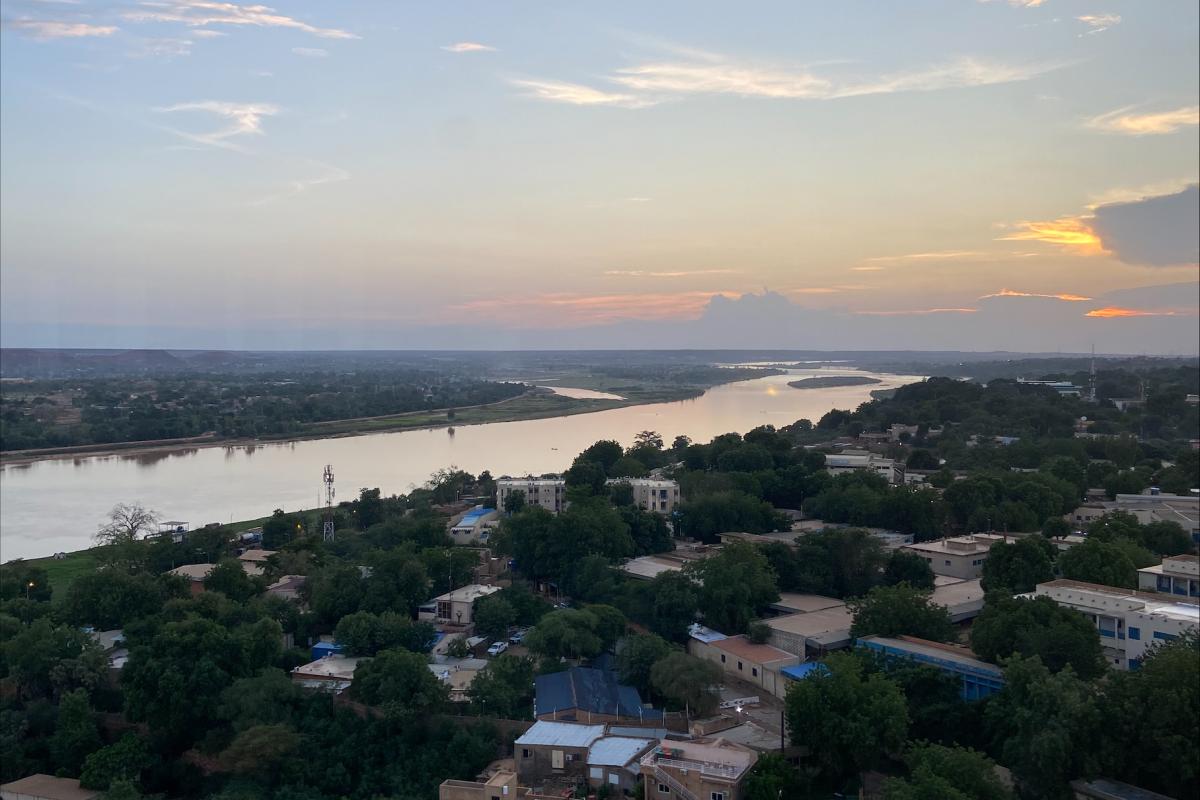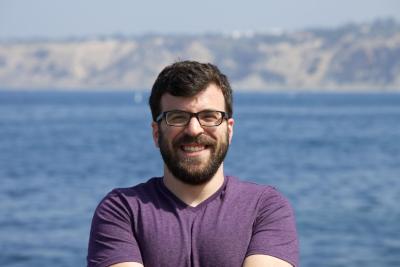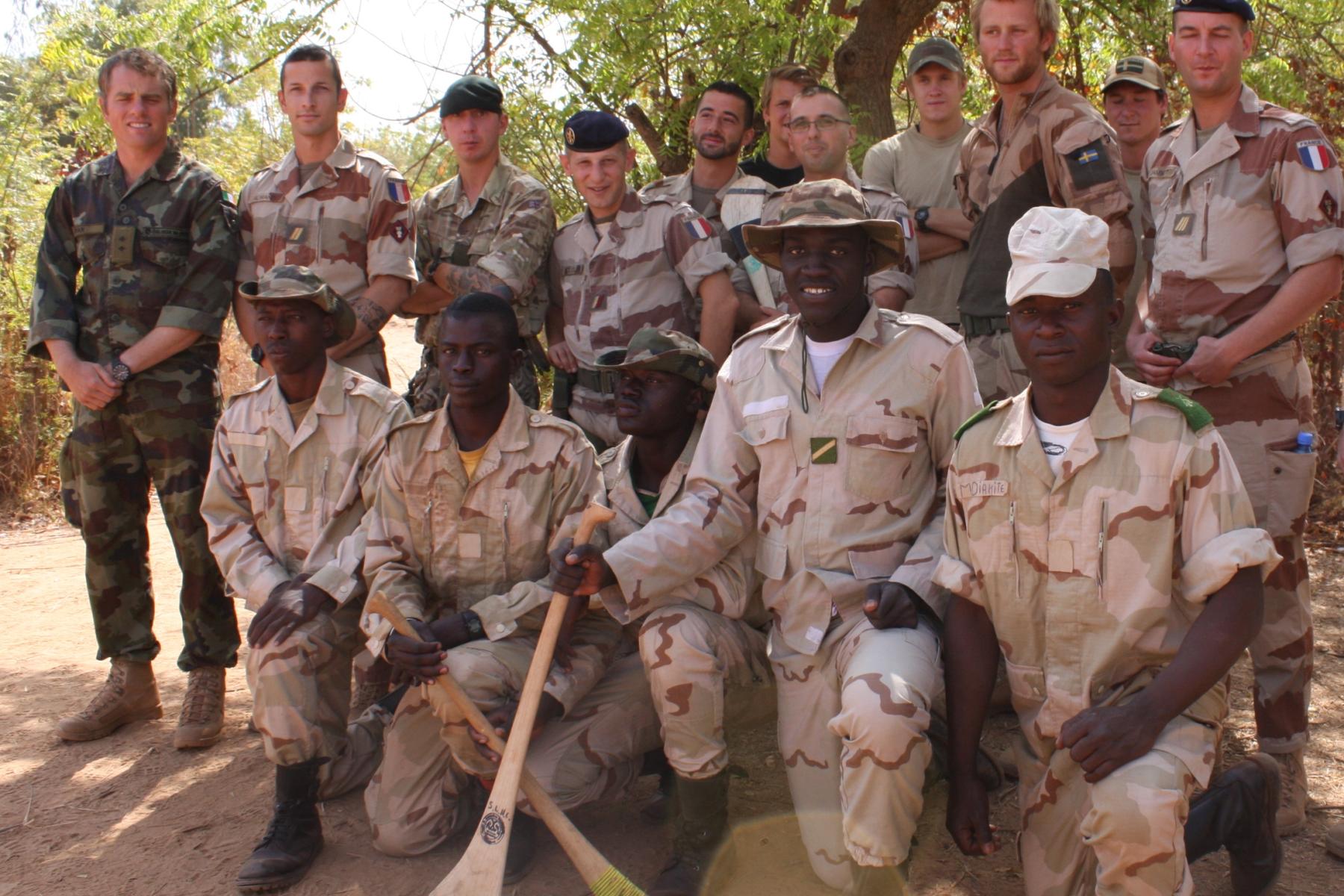
Before the coup Niger had become Sahel’s most important epicenter for Western security interventions
Overview of Niamey the capital city of Niger. Photo: Andrew Lebovich
“The day of the coup there were a lot of rumors that something was going on. Everyone was trying to get correct and verified information about what has happening. And then at night when the newly formed National Council for the Safeguard of the Homeland (CNSP) announced on national television that the constitution was suspended and that the seventh republic was finished, it became clear to all what had happened,” tells postdoc Andrew Lebovich.
When the coup happened, he was in Niger to interview locals from different sectors of Nigerien society about their views on the European interventions in the country.
Development aid, capacity building programs, intelligence assistance, border control management training, antiterrorism, and military training. For more than 10 years, the West African country, in the middle of the Sahel region, has received a vast amount of different humanitarian and military interventions from the EU and the United States, as well as other partners.
In particular France the former colonial power in Niger, has headed many interventions and deployed troops on combat operations with Nigerien forces.
And after French troops withdrew from neighboring country Mali starting in February 2022, Niger became the main base for European troops in the region.
Despite the massive presence of European partners in Niger the country’s Presidential Guard still managed to carry out a coup and arrest the democratically elected president Mohamed Bazoum on July 26, with the Nigerien military declaring their support to the coup leaders the following day.
He is part of the research project In a war without allies – The EU’s new role in global security led by senior researcher Signe Cold-Ravnkilde. And he was in Niger for at field work trip when the coup happened.

The aim of the research project is to get a better understanding of the local effects of and views on European interventions in Mali and Niger. The project received funding by Carlsberg Foundation in December 2021 and less than two month later French troops were expelled from Mali by the ruling government that came to power though two coups in August 2020 and May 2021.
After the French withdrawal from Mali, Europe and the US had focused their energy on Niger as the one remaining stable, democratic partner in the Sahel-region.
“I think that after coups and subsequent withdrawal from Mali, the international community has been so focused on portraying Niger as a good and stable partner that it did not want to address just how fragile the situation in the country actually was,” says Andrew Lebovich.
“Despite the very strong presence of American and European intervention partners no one managed to discover that a coup was on the way and to intervene politically or otherwise to prevent or disrupt it.”
Mistrust and skepticism towards Europe
His preliminary research uncovered a widespread skepticism and mistrust both in the general population and in parts of the Nigerien military towards European intervention partners, especially France.
“At the top level of the armed forces most officers described having a good relationship with France and the other Western intervention partners. But at lower levels skepticism became more and more widespread. Several of the people I interviewed expressed confusion about the purpose of the interventions and why it was necessary to have so many foreign troops in Niger particularly where their role was not well defined.”
Apart from a lack of understanding of the purpose of some of the interventions, the interviews also revealed a widespread feeling that Europe and especially France was a dishonest partner, and that the interventions were implemented mainly to benefit France.
“In the general population there is a somewhat widespread idea that France is using the interventions to get access to Niger’s minerals and also conspiracy theories that France is actually supporting the jihadist groups that some of the military interventions are aimed at stopping,” explains Andrew Lebovich.
Some of the members of the armed forces described the partnership with France as unequal and France as supercilious.
“One of my contacts portrayed it this way: ‘if you need a knife and ask a partner like Turkey for a knife, then they’ll give you a knife. If you ask France for a knife, then they’ll give you French fries and explain to you that they know you really need French fries and not a knife’.”
Stopping terror and migration
It’s no secret that both the US and Europe have important self-interests when it comes to partnering with Niger. The US upscaled their surveillance assistance in Niger after the 9/11 terrorist attacks as a part of the fight against terrorism.
And after the migration crisis in 2015 the EU upscaled the effort in Niger to decrease migration towards Europe. As a key transit country for migrants from West Africa, Niger became an important partner for the EU to stop migrants.
“But for people in Niger migration towards Europe is not necessarily viewed as Niger’s problem and people feel that the interventions’ aim is mostly just stopping migration and not to benefit Niger.”
Despite more than 10 years of US and EU funded interventions in the country jihadist groups is still a major problem both in Niger and in the Sahel region in general, even if Niger has fared better than its neighbors.
“The fact that the interventions have not been able to stop jihadist groups also contribute to some people arguing that the country should look for other partnerships than with Western countries,” says Andrew Lebovich.
The coup in Niger has been condemned by both the US and the EU, and France immediately stopped all development aid to Niger when it became clear that the elected president had suffered a coup d’état.
The West African economic association ECOWAS has threatened to intervene militarily to restore Bazoum’s presidency, the military junta has announced a new government showing no sign of retreat from power. In the moment of writing no clear end game. The number of internally displaced people are on the rise in the Sahel region and most likely terrorist groups will benefit from military intervention and more political turmoil. Niger’s partners are spinning their heads on the next move.


